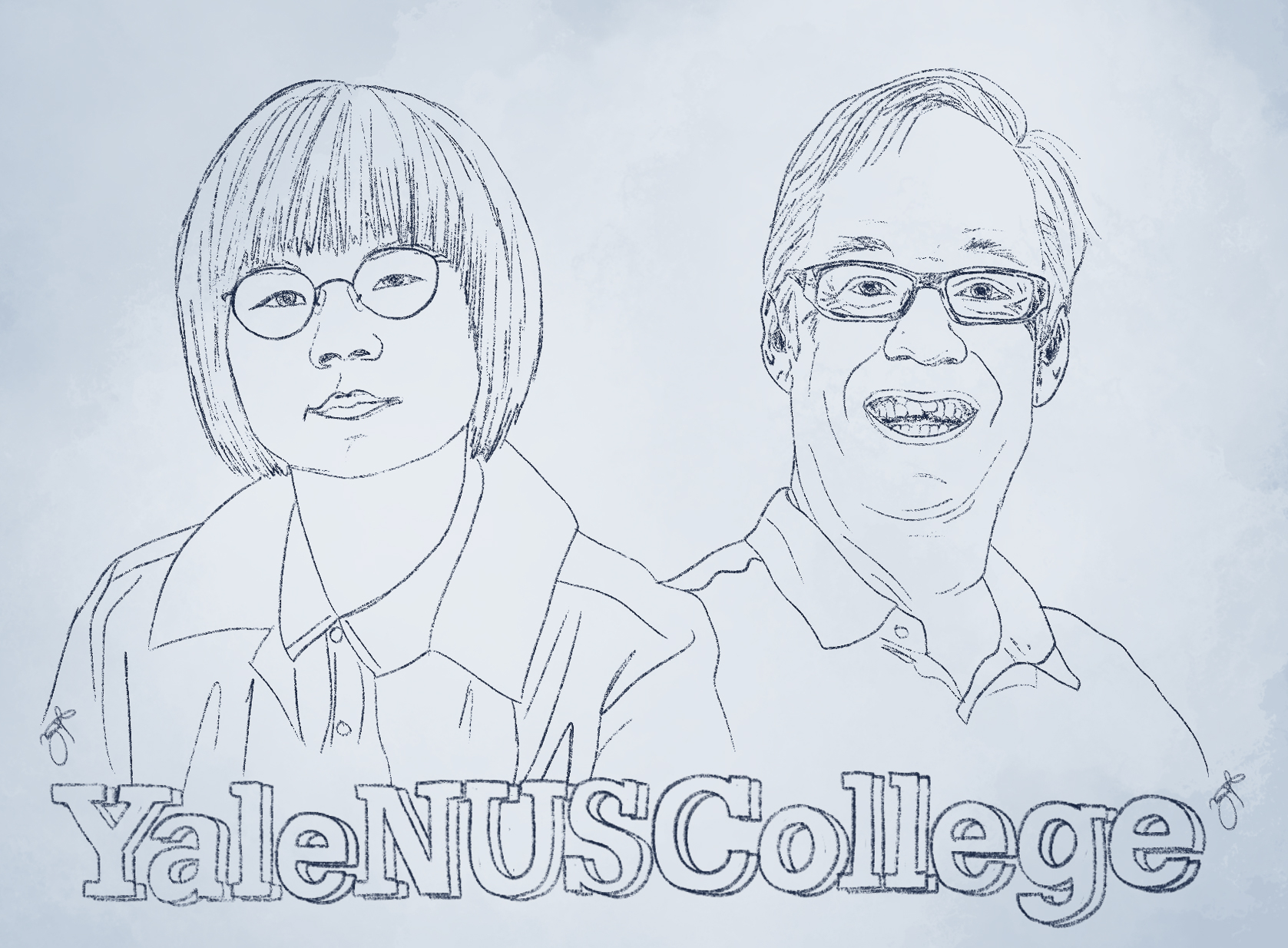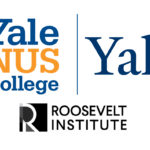
Zoe Berg, Photo Editor
Environmental studies professor Michael Maniates and literature and writing lecturer Carissa Foo were awarded the Yale-NUS Teaching Award, which recognizes faculty who challenge students, engage the community in learning or teach in innovative and inspiring ways, according to the Yale-NUS website.
Each year, Yale-NUS awards two teachers: a professor, associate professor or senior lecturer who receives the Distinguished Teacher Award, and an assistant professor, lecturer or postdoctoral fellow who receives the Early Career Teaching Award. According to the award description, recipients will receive a salary bonus at the end of the year.
“I feel quite honored,” Foo, who received the Early Career Teaching Award, told the News. “There’s so many good colleagues who teach so well in the school. And also, I’m just grateful for students, for colleagues, for the committee’s recognition.”
While she “never thought of being in academia” while she was in college, Foo unexpectedly started teaching as she pursued further higher education — to her surprise, she loved it.
According to Foo, one of her favorite aspects of teaching is doing “justice to the texts” she loves. She also enjoys the classroom synergy that occurs when students see and understand the depth and philosophies of the texts — and when they apply the lessons to their own lives.
“I’m always interested in what students offer to the interpretation of texts via their own subtexts and interests, which is something that naturally lends itself to a myriad of assessments that encourage them to translate literature into their daily experience and vice versa,” Foo wrote in an email to the News.
Foo emphasized that much of her work is in collaboration with her colleagues facilitated by the college’s common curriculum. Many of the ideas she teaches, Foo said, are based on discussions she has had with colleagues and the ideas they have shared. She also credited the beliefs of one of her undergraduate instructors, Angela Frattarola, from whom she learned the importance of having “a personal stake” in the materials and texts she teaches.
In Foo’s “Girlfriends: Narratives of Friendship” class last fall, Foo was able to step out of her comfort zone, using film as a method of teaching. With support from a teaching grant, Foo worked with a consultant to find the most effective ways to teach film in class.
“That turned out to be really rewarding as a teacher,” Foo said. “We had a project that came out of the class where we did a ‘zine of sorts, and it was incredible. We had this whole printed out magazine, and it was beautifully done.”
For Maniates, receiving the teaching award felt like winning the lottery.
Maniates said that with so many strong teachers at Yale-NUS, he is sure there were many people in the running. But receiving the award reminded him that he works in “a rich community of people who take teaching seriously.”
“It’s really a great honor,” Maniates, who received the Distinguished Teaching Award, said. “It just redoubles my commitment, not just to my students, but also to helping junior faculty in particular, think about how to teach effectively, and, I think, with a certain amount of joy.”
After joining the Yale-NUS faculty in 2013, Maniates was tasked with forming what would become the environmental studies program at Yale-NUS. He expressed gratitude for Yale-NUS Founding President, current Vice President for Global Strategy Pericles Lewis and Founding Dean of Faculty Charles Baylin ’81 for hiring him and giving him that opportunity.
About a month after founding the department, Maniates recalls Lewis telling him that zero students had expressed interest in declaring an environmental studies major. But that did not discourage him as he began to build the program. Now, environmental studies is one of the largest majors on campus, according to Maniates.
“Maniates was really the brains and the brawn behind designing the whole Environmental Studies program,” said Brian McAdoo, head of studies of the environmental studies department at Yale-NUS. “He’s a truly remarkable professor. … He designed an absolutely fabulous program. It’s the most student-centric and thoughtful and flexible major at Yale-NUS, which is necessary because it’s so diverse.”
Like Foo, Maniates found himself in a teaching position unexpectedly but ended up loving it. After missing the chance at a research assistant job at a lab at the University of California, Berkeley while in graduate school, Maniates got a job as a grader and then a teaching assistant. Realizing he enjoyed the work, Maniates decided to pursue academia.
In addition to helping form the college’s environmental studies program, Maniates said another favorite experience has been facilitating his “Comparative Social Inquiry” seminar. A part of the college’s common curriculum, the seminar is taken by first-year students and is a huge hit with the first years, according to McAdoo.
“[Teaching undergraduates is] a god-given opportunity to make a small difference in a lot of people’s lives and a big difference in a few people’s lives,” Maniates said. “And the thing is, you don’t know which group people fall into until many, many years after a class, and so just being aware of that, I think, brings a certain sense of purpose.”
Last year, associate professor of sociology and public policy Anju Mary Paul won the Distinguished Teaching Award and assistant professor of environmental studies Matthew Schneider-Mayerson ’04 won the Early Career Teaching Award.
Adam Levine | a.levine@yale.edu








